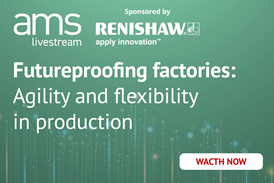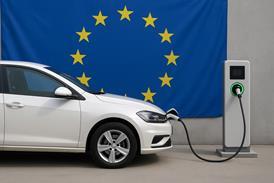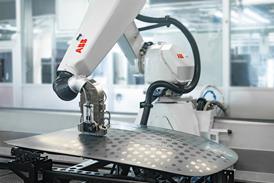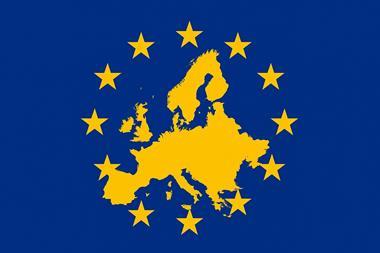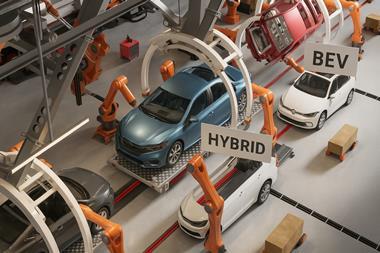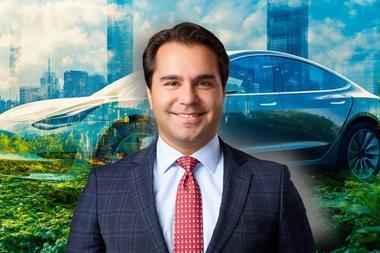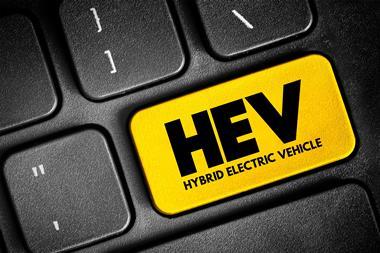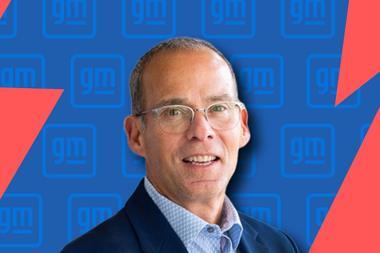
Swedish steel specialist Uddeholm has built its reputation as a global supplier of tooling materials and services. The company’s vice-president for sales and marketing, Pär Emanuelsson, talks to automotive writer Dermot Healy about the company’s strategy for India.
 Dermot Healy: To begin with, what can you tell us about Uddeholm’s work to support the Indian automotive sector?
Dermot Healy: To begin with, what can you tell us about Uddeholm’s work to support the Indian automotive sector?
Pär Emanuelsson: India has long been an important market for us. Uddeholm has had a presence in the Indian market for over three decades, beginning in 1984 with a local partner company, and forging some very strong relationships with OEMs and Tier 1 suppliers there. Of course, we are serving customers across various sectors, not just automotive, but the automotive sector is a big part of what we do. In terms of invoicing, India is now among our most important markets and we foresee significant future growth as the Indian automotive sector develops further.
DH: What services and products do you supply to your customers in India? Does the breakdown differ substantially from other markets?
PE: We are very strong in high-pressure diecasting, where we dominate the Indian market – we are market leaders worldwide in fact – but we also support a range of other technologies to the sector. This includes forming and blanking of high-strength steels, fine blanking, powder compacting and, to a certain extent, plastic moulding.
There is a lot of development going on in the Indian automotive sector at the moment. It is true to say that countries like India, and maybe Mexico, for example, have a different share of the more challenging applications, when compared to Europe or the United States, so we do not yet see the same extent of high-strength steels and similar materials being used.
That will undoubtedly come in time as more OEMs start producing entire cars in India. Of course, the range of models in production also influences these requirements. Up to now, it has been small- and mid-size vehicles that have dominated the Indian market, but complexity is growing, and the product range will become more diverse and bring with it new demands. Higher safety demands and lighter vehicles will involve technologies where we feel very comfortable working with our partners and sharing our experience and insight.
DH: So, would you agree that the market and the technology is moving in your direction? Do you think that, as the Indian market develops, we will see a transfer of know-how from your more traditional markets to India?

Indeed, if we look at high-strength steels, Uddeholm now has 20 years experience in this material. We collaborated with steel makers early on to develop the necessary forming technologies almost before the automotive industry had itself been won over to their potential. It is the same story with the hot-stamping process, where we were heavily involved with partners in the development of the technology. This gives us a wealth of experience that we can share in the Indian market as demand for these technologies grows – as it undoubtedly will.
An exciting development here is the increasing interest that Uddeholm has seen in our DIEVAR® hot work-tool steel product. This offers an unparalleled resistance to heat checking in high-pressure die casting. It is as if the demand for that product, which enhances tool life, is a good indicator of India moving onto the next stage of technology in automotive manufacture. This gives us confidence that the market is developing as we had forecast.
DH: Is your recent decision to form a new company in India a sign of Uddeholm’s increasing commitment to the region?
PE: Well, we have been very pleased with what we have been able to achieve in India over the years and have great confidence in our future there. We have recently opened new warehouses in Delhi, Mumbai, Chennai, along with heat-treatment facilities at our Chennai and Mumbai locations. We can carry extensive stock and provide fast delivery and proper customer support. Our intention, of course, is to develop further value-added facilities in the area over time so that we keep ahead of developments and act as a full-solution provider.
Our recent heavy investment has really been prompted by listening to our customers in India. In the past, OEMs and Tier 1 suppliers had frequently expressed general concerns about supply-chain problems in India and we are determined to give our customers the same level of service wherever they are located. We just have to make the investment, do the planning, and ensure that we have the infrastructure, warehousing and logistic solutions to make it possible that we can meet their needs in an appropriate and timely fashion.
It is our basic business model – and a corner stone of everything we do – that we deliver the same quality of product and service wherever the customer is located. Uddeholm has always taken the view that we must always be one step ahead. And so we invest in infrastructure in advance of the demand so that we can serve customers properly from the outset, rather than wait for problems to arise and then try to react. By securing first-mover advantage we are able to maintain market leadership.
Of course there are challenges in different markets but we just have to adapt to meet them. In India, we no-longer see this as a challenge, because we have the people and the infrastructure in place to perform as we should. And we must be getting it right, because the feedback from our customers is very positive. We are very proud to have been recipients recently of several awards for our service from Godrej, the toolmaker. This is one of India’s large engineering groups and one of our major customers, so we feel this is an indication that we are doing things right.
DH: Turning to your workforce, how many people do you have in India? What challenges have you faced with training and support?
PE: We have about sixty people based in India at the moment. We hire experienced people and train them carefully both on site in India and in Europe. This is important not just to provide our customers with good service, but also to facilitate technology transfer. Our aim is to develop long-term partnerships with our customers and offer them access to the best and most appropriate technologies and products to suit their needs.
To do this, it is important to spread industry best practice. That requires well-trained people who are familiar with what is happening across the globe. We have a team of technical people and application engineers who can train local staff and update their knowledge on a regular basis. It is all part of our mission to deliver the same quality of service to all our customers whatever the location.
DH: So this transfer of expertise is an important part of what Uddeholm can offer?
PE: We see it as our job to help our customers achieve the lowest cost per unit part. We want to supply them with what we call the ‘Total Tooling Economy’. This is where you adapt the type of tool steel to the type of material and end product, so we want long-term relationships where we can work from an early stage with our customers in development. This allows them to optimise their cost base by selecting the right tool steel, as well as efficient treatments for that tool steel, in order to provide the best solution.
DH: So that means working with customers from a very early stage in development?
PE: Yes, definitely. That is always our aim. You see, we have a unique competence that comes from working worldwide with many of the very well-known OEMs in light-vehicle production, trucks, motorcycles – right across the board. This means we can use this same expertise and experience to help in the Indian context.








